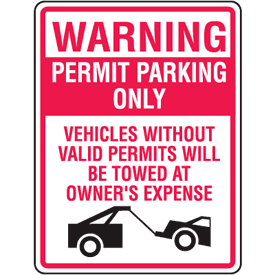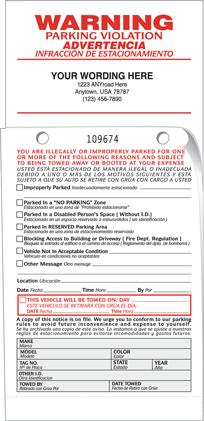Highlights from the 2014 Income Property Management Expo
Pasadena, CA – March 25, 2014

- 2014 Southern California Income Property Management Expo – Pasadena, CA
We hope to see everyone back in Pasadena in 2015!
www.IncomePropertyExpo.com
Pasadena, CA – March 25, 2014

We hope to see everyone back in Pasadena in 2015!
www.IncomePropertyExpo.com
Apartment News Publications Inc. is teaming up with the Income Property Management Expo to provide Apartment Owners/Managers & Commercial Property Management Companies with tools for efficient, cost effective management, operation and maintenance of their communities & facilities!


Southern California Attendee Information:
This expo will host FREE seminars throughout the day addressing CA Energy Efficiency Programs, Landlord Legal Updates, Tax Code & 1031 Exchanges, Property Maintenance and more! The goal of the Expo is to provide attendees with the opportunity to network with other industry professionals while enjoying fine food tastings, the PGA Experience, Luxury Car Display & Test Drives, raffles & giveaways and the expo floor which will have over 100 exhibitors!
To learn more about the Income Property Management Expo, how to attend for FREE, or learn how to reserve a booth for the Expo Floor, visit IncomePropertyExpo.com!
By: Nick Frantz | OneCallNow.com
 I don’t know a property manager who doesn’t grapple with parking issues. At best, they’re a hassle. At worst, they threaten resident safety, satisfaction and retention. They can even send you to court.
I don’t know a property manager who doesn’t grapple with parking issues. At best, they’re a hassle. At worst, they threaten resident safety, satisfaction and retention. They can even send you to court.
Towing may alienate a resident… but failure to act on a parking problem could alienate many residents. The best solution is a proactive approach that maximizes compliance and minimizes your need to have to make the tough decision. Here are seven tips to help ease parking woes on your property.
1. Understand the parking and towing laws and ordinances in your state and in your municipality.
If you don’t already know the laws, an Internet search should yield results. Illegal towing can do more than damage resident relationships. It can be costly. Some states allow the court to award loss of use damages for the illegally towed vehicle. Residents have to prove their case. But win or lose, it’s going to cost you time and money.

2. Have proper legal signage.
Posting parking permit and restriction signs on your property is one of the most important actions you can take to ensure and enforce compliance. With effective signage, residents, visitors, staff and vendors should never have any question about where to park.
3. Clearly mark the parking lots and curbs.
Sometimes signs disappear, but parking lot stripes and curb paint is permanent. Mark restricted parking areas as clearly as possible; leave nothing to question.
4. Create, publish and distribute a clear, well-defined parking policy.
Your policy should spell out—and itemize—exactly:
If there are seasonal issues in your area, such as snow or flooding, send timely reminders that reiterate the parking policies and procedures.

5. Review your parking and towing policies with your snow removal and towing vendors.
Make sure they understand that only authorized personnel from your staff can request that a vehicle be towed.
6. Personally address parking issues with problem residents.
Some parking infractions aren’t as defiant as they may seem to you or to other residents. When parking issues arise, one-on-one notices are far more effective than blanket reminders. It doesn’t have to be a nasty confrontation. Stay calm, refer to your parking policies and rules, and make sure the resident has a copy. Keep a record of your resident contact with the date, time and content.
7. Communicate regularly and always document.
Managing your property is your job. But your residents have their own jobs, busy—often hectic—lives, and lots on their minds. Make sure your parking rules don’t slip their minds. Proper signage, marked parking spaces and curbs, a published policy, personal reminders and community-wide announcements all work together to minimize slippage.
It’s important to document all your parking compliance efforts. Take photos of your signage, parking lot, curb markings and any instances of policy violations. Keep a record of all your communications to your residents, whether community-wide or one-on-one. Your documentation should show dates, times, and message content. It should also confirm that your residents received your communications. If a conflict or legal issue arises, all of these will work in your favor.
The name of the game here is to maximize parking compliance and minimize towing instances. It takes a proactive approach, vigilance and a commitment to regular communications with your residents.
For more information regarding resident communication solutions please visit www.onecallnow.com, or call (877) 698-3262 to find out how our text, email and voice messages can work for your community.
______________________________________________________________________
 Nick Frantz is the National Sales Manager for Property Management Solutions at One Call Now, where he has worked since March 2011. He specializes in Property Management solutions – commercial and residential – assisting in communications between property managers and staff/residents. Nick holds a Bachelor of Science degree from Miami University.
Nick Frantz is the National Sales Manager for Property Management Solutions at One Call Now, where he has worked since March 2011. He specializes in Property Management solutions – commercial and residential – assisting in communications between property managers and staff/residents. Nick holds a Bachelor of Science degree from Miami University.
By: Nicholas Walker
Apartment living does not mean that you have to give up gardening; it just means that you have to be more creative with space and more thoughtful of what you choose to grow. The same goes for pint size apartment dwellers; tending to a garden is a great way for kids to learn about the earth and gain pride in themselves as they work hard to take care of something. Growing a mini garden sized just right for an apartment is easy and here are some ideas for a miniature plot:
1. First of all it is important to evaluate the amount of space there is available. If there is no balcony or any outside area connected to the apartment then step inside, it is amazing where a garden can grow; kitchen window sills, bathroom shelves, tabletops, sunny corners where plants can thrive. Once the decision about where to grow the garden has been made then what to grow comes next and the choices are many.
2. Making a miniature garden that kids can tend can is as simple as purchasing a few small pots of indoor plants and flowers and clustering them together in one area, African violets, cyclamen, hibiscus and orchids are great choices and have color and yummy aromas which kids love. Choose a container and fill it with succulents, add pebbles and rocks for a southwestern feel that will definitely bring some sunshine into a winter home. Avoid prickly cacti or little hands could get hurt when looking after their garden, stick to aloe plants and smooth leafed desert cacti; the great news about succulents is that they are hardy, low maintenance and look interesting, a triple whammy of miniature cool.
3. Growing a garden from a seed is always a winner; it opens up a wonderful opportunity to teach kids all about where food comes from and the importance of looking after our planet. As the plants grow, so will the joy that kids get from tending to their indoor plot. It is a relatively inexpensive way to start a garden but it is more time consuming and seeds need a lot of care in the beginning to survive.
4. An indoor herb garden is a great idea as well and all you need is a window ledge and some light and you are in the miniature gardening business, which means big fun for kids. Herbs are fast growing and hardy, they smell yummy and taste delicious too so they are a wonderful introduction to sustainable gardening for kids; eating what you grow has always been very cool. Some good herbs to grow are mint, rosemary, basil, cilantro, thyme, lemongrass and oregano.
5. Tabletop gardening is a great use of small space, all that is needed is a pot, soil and sunlight and you are good to grow. Growing a mini tropical garden is as easy as picking a coconut, plant some miniature bamboo, miniature palm trees and aromatic orchids to make a tropical jungle garden fit for an apartment.
Apartment gardening for kids is fun, affordable and environmentally conscious, three good reasons to get growing.
_________________________________________________________________________
 Nicholas Walker is one of the world’s most accomplished garden designer- builders. Nicholas is a member of the Association of Professional Landscape Designers and the Garden Writer’s Association of America. His partnership in Jardin, of kathy ireland Worldwide (kiWW), has established him as one of America’s most celebrated and innovative leaders, in the design community. He speaks on sustainability, the environment and a healthy, greener lifestyle.
Nicholas Walker is one of the world’s most accomplished garden designer- builders. Nicholas is a member of the Association of Professional Landscape Designers and the Garden Writer’s Association of America. His partnership in Jardin, of kathy ireland Worldwide (kiWW), has established him as one of America’s most celebrated and innovative leaders, in the design community. He speaks on sustainability, the environment and a healthy, greener lifestyle.
His stunning works of art have been featured in magazines, such as the historic Elizabeth Taylor gardens’ inArchitectural Digest, Metropolitan Home, Sunset Magazine, Garden Design, Forbes and LA Times Magazine. He is also a contributor, to Good Housekeeping Do it Yourself, Woman, Furniturefind.com and kathyireland.com.
Media Apperances:
Oprah, HGTV | Forbes Magazine | Architectural Digest- The Private World of Elizabeth Taylor | Casual Living | Gardens of Inspiration | Sustanable Living Council Dwell on Design | Craftsman Radio | Bella Petite Magazine
By: Elizabeth Whited | www.therrd.com
 As we all well know, the Fair Housing Act prohibits any type of discrimination from Real Estate Professionals when choosing who to rent their property or unit to in regards to race, gender, sexual orientation, disability, family status or national origin, and in some counties: section 8 voucher status (www.tenantsunion.org). But what about disparate impact?
As we all well know, the Fair Housing Act prohibits any type of discrimination from Real Estate Professionals when choosing who to rent their property or unit to in regards to race, gender, sexual orientation, disability, family status or national origin, and in some counties: section 8 voucher status (www.tenantsunion.org). But what about disparate impact?
Disparate impact is the legal theory that people of certain races and ethnicities are disproportionately represented in the criminal justice system. This theory was previously used in regards to employment, but in recent years has moved into the real estate industry as well. The theory states that the use of criminal records for tenant screening purposes has a disparate impact on certain minorities who have been disproportionately represented in the legal system, and who therefore have criminal records that could be used to determine that they should not be rented to. Fair Housing Advocates argue that in effect, while you may be following all Fair Housing Laws, and screening every applicant, you could be inadvertently discriminating against certain minorities (Wikipedia).
The Landlord Times gives a great example: “…a property management company has a policy of charging a set rental amount for the first three residents in a household, plus $100 per month for each additional resident. This policy, although applied equally to all applicants and residents, will have a disproportionately negative effect on families with children, and thus likely violates fair housing laws. Similarly, a policy of denying rental to everyone who has any criminal record may have a disparate impact on certain protected class groups (such as race, national origin, and disability).”
On the other side of that argument are landlords and owners who want to protect their tenants, as well as their staff from those who have committed crimes in the past (be it on a property, or not). Another question that is being debated by certain states is should applicants who have a criminal history be immediately rejected, even if it is not directly related to an on-property offence? This issue also arose in employment screening, and a few states have made amends to only deny an applicant if they can directly relate the crime to the specific job the applicant applied for. They also argue that being a convicted criminal does not put a person into any protected class.
Another law that you could begin to see take hold in other states is the Fair Tenant Screening Act, passed in Washington, which compels landlords to share the reasons behind obtaining certain information required from applicants that is used during the screening process. If a landlord or owner does not disclose this information, then they themselves must pay for the screening fee, even if a third party tenant screening company is used. The owner must also easily identify what criteria for that particular property will fail an applicant. If an adverse action follows a screening report, then the manager or landlord must notify the applicant in writing if it is a direct result of any of the following conclusions:
A few screening companies out there already offer adverse action letters, and lists of criteria needed from applicants that will be used in their screening process. If criminals cause problems on a property, then future landlords and property managers have a right to know. This does not mean however, that they will not be rented to, but sharing this type of information can be beneficial to all parties involved. Any sort of “black list” of who not to rent to posted online, written, or read aloud in any capacity is illegal, because there is no addendum to inform the tenants, evidence, and no appeals on behalf of the tenant.
Do your research, and make sure to find a database that utilizes all of these tools and is Fair Credit Reporting Act compliant for a completely legal way to share information about tenants. To stay up to date on new amendments and additions to the Fair Housing Law, please visit the U.S. Department of Housing and Urban Development website, or see a list of landlord/tenant laws broken down by state.
_____________________________________________________________________
 About the Author: Elizabeth Whited is the Operations Coordinator at the Rent Rite Directory. She has written educational articles for multifamily magazines and Real Estate websites to help Property Managers and Owners improve their properties, in an effort to reduce crime in their communities. The Rent Rite Directory educates Property Managers and Owners at Crime Watch Meetings, and Crime Free Association Conferences, and works closely with law enforcement nationwide. For more information, visit www.therrd.com.
About the Author: Elizabeth Whited is the Operations Coordinator at the Rent Rite Directory. She has written educational articles for multifamily magazines and Real Estate websites to help Property Managers and Owners improve their properties, in an effort to reduce crime in their communities. The Rent Rite Directory educates Property Managers and Owners at Crime Watch Meetings, and Crime Free Association Conferences, and works closely with law enforcement nationwide. For more information, visit www.therrd.com.
Elizabeth Whited 1-855-733-2289, ewhited@therrd.com
Renter Nation – 10/31/2012 7:02 pm
SIOUX FALLS, SD – What do Homeowners Associations have against renters? That is the question being asked by renting lifestyle advocate Bill Deegan, the CEO of Renter Nation, the country’s only nationwide group “by, for and about residential renters.”